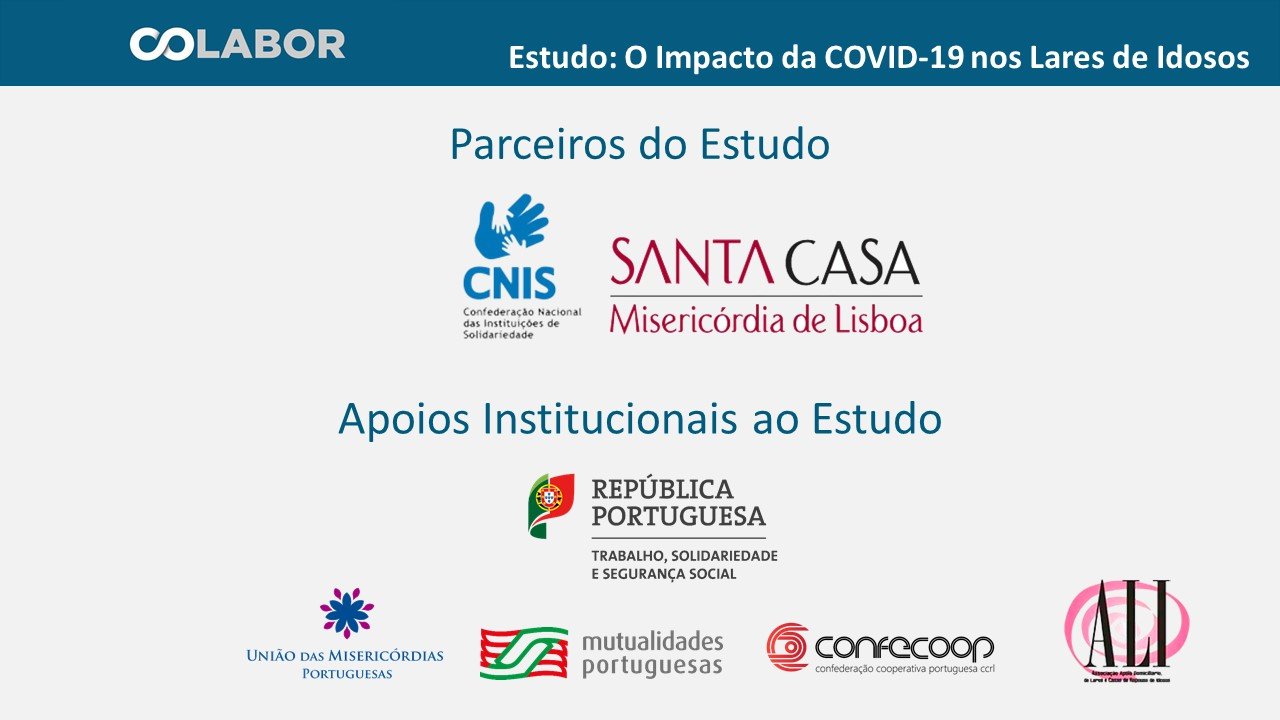CoLABOR launches national survey on the Impact of COVID-19 on ERPI and ULDM, with the support of MTSSS and in partnership with CNIS and SCML
CoLABOR is carrying out a study on "The Impact of COVID-19 on Care Homes for the Elderly", through the application of an online questionnaire survey to all Residential Structures for the Elderly (ERPI) and Long Duration and Maintenance Units (ULDM) of the National Network of Integrated Continued Care (RNCCI) in mainland Portugal.
The nationwide study is being carried out in partnership with Santa Casa da Misericórdia de Lisboa (SCML) and the National Confederation of Solidarity Institutions (CNIS). The study also has the support of the Ministry of Labor, Solidarity and Social Security (MTSSS), as well as all the partners with representation on the Standing Committee on the Social and Solidarity Sector (CPSS) and the President of ALI - Associação de Apoio Domiciliário, de Lares e Casas de Repouso de Idosos.
On March 11 and 12, CoLABOR emailed links to respond to the questionnaire to the universe of ERPIs and ULDM/RCCIs in Portugal, via the address invites@mailer.surveygizmo.com used from licensed software (ALCHEMER).
If any institution has not received the email about filling in the questionnaire, or has received fewer links than the number of ERPIs it has, please check your email inbox for spam. If it is confirmed that the links need to be resent or that additional links need to be sent, please write to estudos@colabor.pt in order to receive them.
CoLABOR also provides access to the guide to filling in the questionnaire and recommends that you read it beforehand:
The questionnaire is anonymous and CoLABOR preserves the confidentiality of respondents.
CoLABOR welcomes the participation of ERPIs and ULDM/RNCCIs in the survey, which runs until April 30.
The participation of institutions is essential to learn about the vulnerability mechanisms and good practices followed in the context of the response to the COVID-19 pandemic and the protection of the elderly in Portugal, as well as to improve the characterization of existing social responses and contribute to the formulation of public social and health policies.

